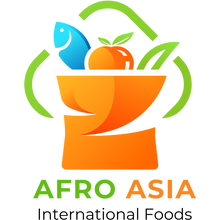The Importance of Halal in the Muslim Consumer Market
With the growth of the Muslim consumer market, there is a need to understand the terms used to describe the many services, needs, and practices related to this segment of consumers. Understanding these concepts, terms, and definitions will help stakeholders to navigate the segment better. One of the most important terms to grasp is "Halal," an Arabic term that holds deep significance in the Islamic faith.
What is the meaning of Halal (حلال)?
The term "Halal" is commonly used in Arabic to indicate permissibility or acceptability. Within the Islamic faith, Halal refers to actions and behaviors that are considered permissible according to Islamic teachings. Conversely, "Haram" denotes actions or behaviors that are forbidden within the context of Islam.
What is the meaning of Halal food?
Halal food is any food deemed permissible under Islamic law, as defined in the Quran. The Islamic dietary laws specify that all food and beverages are considered Halal unless explicitly stated as forbidden. These laws guide Muslims around the globe in identifying what foods are Halal, thus fulfilling their dietary requirements in accordance with Islamic teachings. Muslims worldwide accept the Quran as the book of perfect direction and bearing for humankind and believe the Quran to be the last revelation of God.
"Halal" refers to what is permissible or lawful in Islamic law. It encompasses various aspects of life, including food and beverages. For food to be considered halal, it must meet certain criteria and adhere to Islamic dietary laws, known as "halal guidelines."
Key principles of halal food include:
1. **Prohibited Ingredients**: Certain ingredients are considered haram (forbidden) and are not allowed in halal food. These include pork and its by-products, alcohol, carnivorous animals, birds of prey, and animals that have died from causes other than proper slaughter.
2. **Slaughter Method**: The slaughter of animals for halal meat must be performed by a Muslim who follows specific guidelines. The animal must be alive at the time of slaughter, and the name of Allah must be invoked as the animal is slaughtered. The slaughtering method should ensure swift and humane killing, with minimal suffering to the animal.
3. **Certification**: In many countries, halal certification agencies or organizations oversee the production and distribution of halal food products. These certifications provide assurance to consumers that the food has been prepared according to halal standards.
4. **Cross-Contamination**: Halal food should not come into contact with haram substances during preparation, cooking, or serving. Utensils, equipment, and surfaces used for halal food should be free from contamination with prohibited substances.
5. **Labeling**: Products that are certified halal may bear halal certification labels or symbols to indicate their compliance with halal standards. This helps consumers identify halal products more easily.
Halal food is consumed by Muslims worldwide, and adherence to halal dietary laws is an important aspect of Islamic practice. However, halal food is also enjoyed by people of various cultural and religious backgrounds who seek products that meet certain quality and ethical standards, such as humane animal treatment and clean food processing practices.
Although some specific teachings vary, the consensus is that food/drinks must be free of pork, alcohol/intoxicants, poisons, harmful ingredients, or unhygienic elements. The animals that are allowed for consumption must be slaughtered per the methods prescribed under Islamic law, known as Zabihah.






















